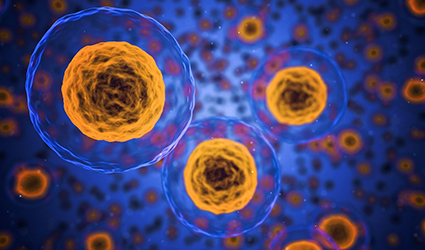IACS – An Advanced Cell Sorter
August 29, 2018
Source: drugdu
 994
994

The technique of cell sorting can be used to study the cell structures and chromosome patterns. In the medical field cell sorting is used in cancer studies. For the past 50 years, cell sorting by flow cytometry based on phenotypic profiles has been widely used. But recently on August 27th, 2018, a research team from Tokyo University have invented a modified cell sorter named ‘Image-Activated Cell Sorting,’ or IACS, which was published in the journal Cell.
IACS has got two unique features:
1. Cell sorting is done based on phenotypic profiles, morphological and spatial properties.
2. IACS integrates mechanical, electrical, optical, computational and microfluidic technologies for cell sorting.
A startup company named CYBO, Inc. will be commercializing this IACS technology very soon. Nearly 50 experts from 26 institutions have taken 6 years for its construction and testing using LIGO (Laser Interferometer Gravitational-Wave Observatory) strategy.
Keisuke Goda, the lead investigator behind this research said, "The platform enables image acquisition, image processing, decision making, and actuation, all within 32 milliseconds even with deep learning algorithms, and hence realizes real-time image-based intelligent cell search and sorting at an unprecedented rate of about 100 cells per second. The intelligent IACS technology is highly versatile, can handle various types and sizes of cells in diverse fields ranging from microbiology to hematology, and holds promise for making machine-based discoveries in biological, pharmaceutical, and medical sciences."
IACS has got several disadvantages. For the time being, IACS cannot analyze larger biological compounds, but it can be possible later by modifying optical and microfluidic systems. Since IACS is too large and complex, one cannot implement this system in all the labs.
By DduRead more on
- Things to Know before Buying Newborn Baby Incubators March 31, 2022
- Highly Resistant Food Poisoning Bug Responds to Antibiotics September 6, 2018
- Smartphone Based Diagnosis to Identify Mosquitoes Transmitting Infection September 5, 2018
- 3 Natural Plant Extracts Manufacturers on Drugdu.com September 4, 2018
- Shenzhen Chuanggan – Health Assessment Facility Supplier September 4, 2018
your submission has already been received.
OK
Subscribe
Please enter a valid Email address!
Submit
The most relevant industry news & insight will be sent to you every two weeks.



